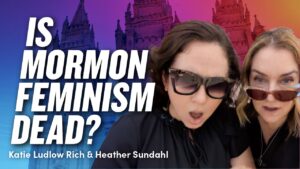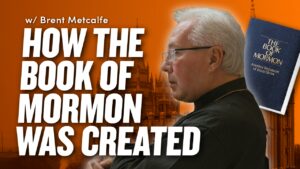Dan McClellan is back to offer insights into common views of the Bible, including Evangelical and Latter-day Saint perspectives. He suggests that Latter-day Saints should be open to the Bible’s potential inaccuracies and dives into the intricate topic of authorship, revealing that many individuals contributed to the texts over a thousand years.
McClellan challenges literal interpretations of biblical figures like Moses and Adam based on available data, but doesn’t stop there! He also explores gender roles, slavery, and polygamy in biblical contexts, revealing how ancient societies influenced these aspects. End-time prophecies, the concept of Hell, and their development are also examined.
McClellan advocates for a nuanced approach to the Bible, emphasizing the importance of understanding its genre and historical context. The interview encourages critical engagement with this ancient and complex text.




4 Responses
The audio and MP3 download still play part 1 instead of part 2. Can that be updated please? Thank you!
Updated! Thank you Kyle!
I found all five hours utterly enthralling listening. Dan McClellan’s contribution to the community that Mormon Stories serves is of incalculable benefit, to say nothing of the impact his work must be having on the Judao-Christian world in general. My only disappointment is in his alternative spelling of his name as Maklelen – his Scottish ancestors must surely be turning in their graves!
I would be interested to know Dan’s views about which English translation of the Bible best reflects the manuscripts – such that exist. The following is a link to a podcast of a lecture given by 17th-century historian, Professor Pauline Croft of Royal Holloway College, London in 2011, on the occasion of the 400th anniversary of the James I bible (https://podcasts.ox.ac.uk/making-king-james-authorised-version-bible-1604-1611) Clearly the 1604-11 translation was undertaken at a time of great political turmoil (Gunpowder Plot 1605) in Britain, where the Scottish King was attempting to establish his authority at Westminster in the face of the increasing influence and belligerence of Parliament. Croft describes some of this political background and how James particularly disliked the then most recent English translation – the 1560 Geneva Bible – because of inter-alia its marginal references to the tyranny of many of the kings. James was desperate to present monarchy in a good light.
It would be interesting to know what Dan thinks about this translation – so overwhelmingly favoured by LDS authority. And also the extent to which English translations are faithful to the manuscripts.